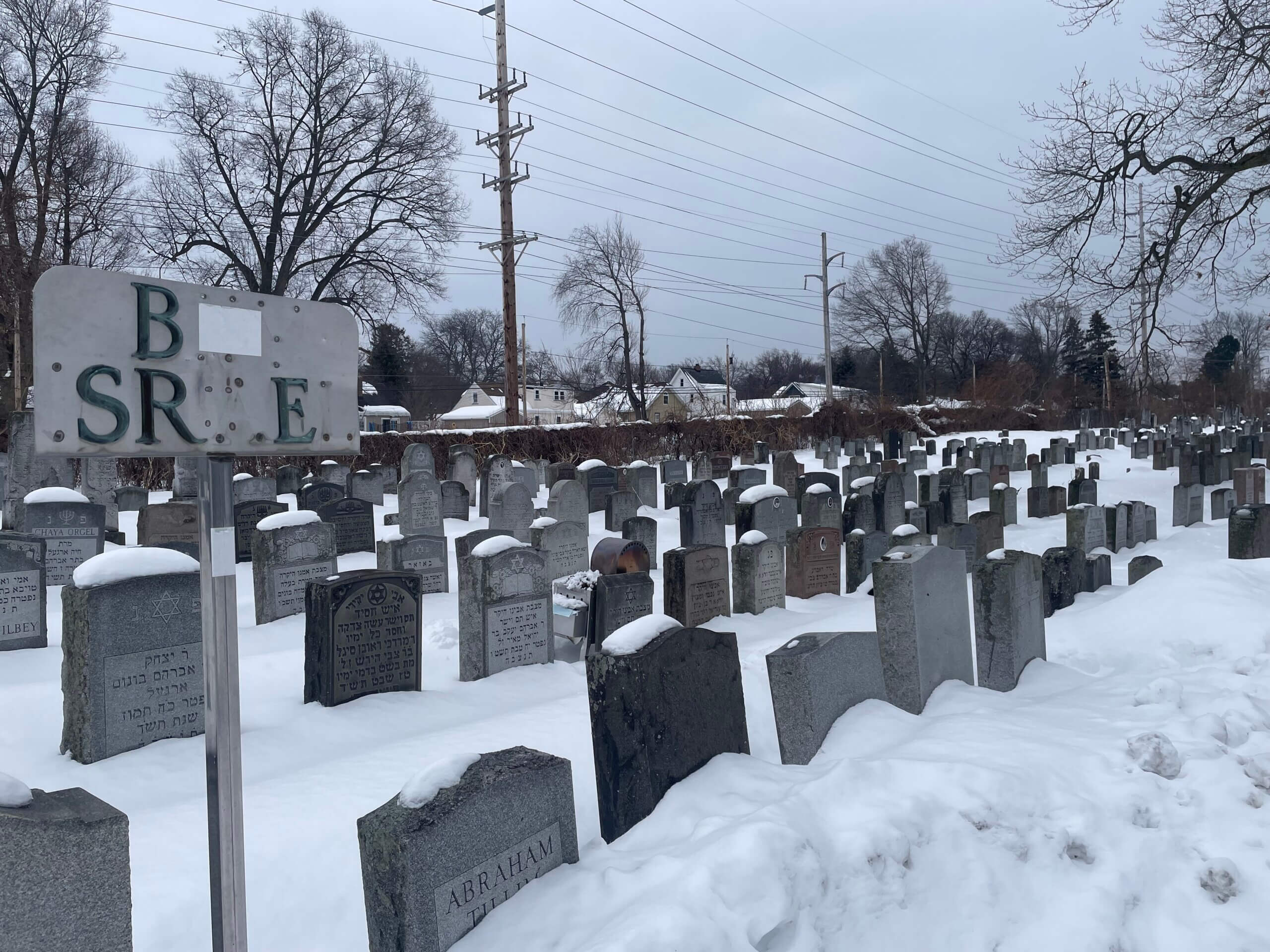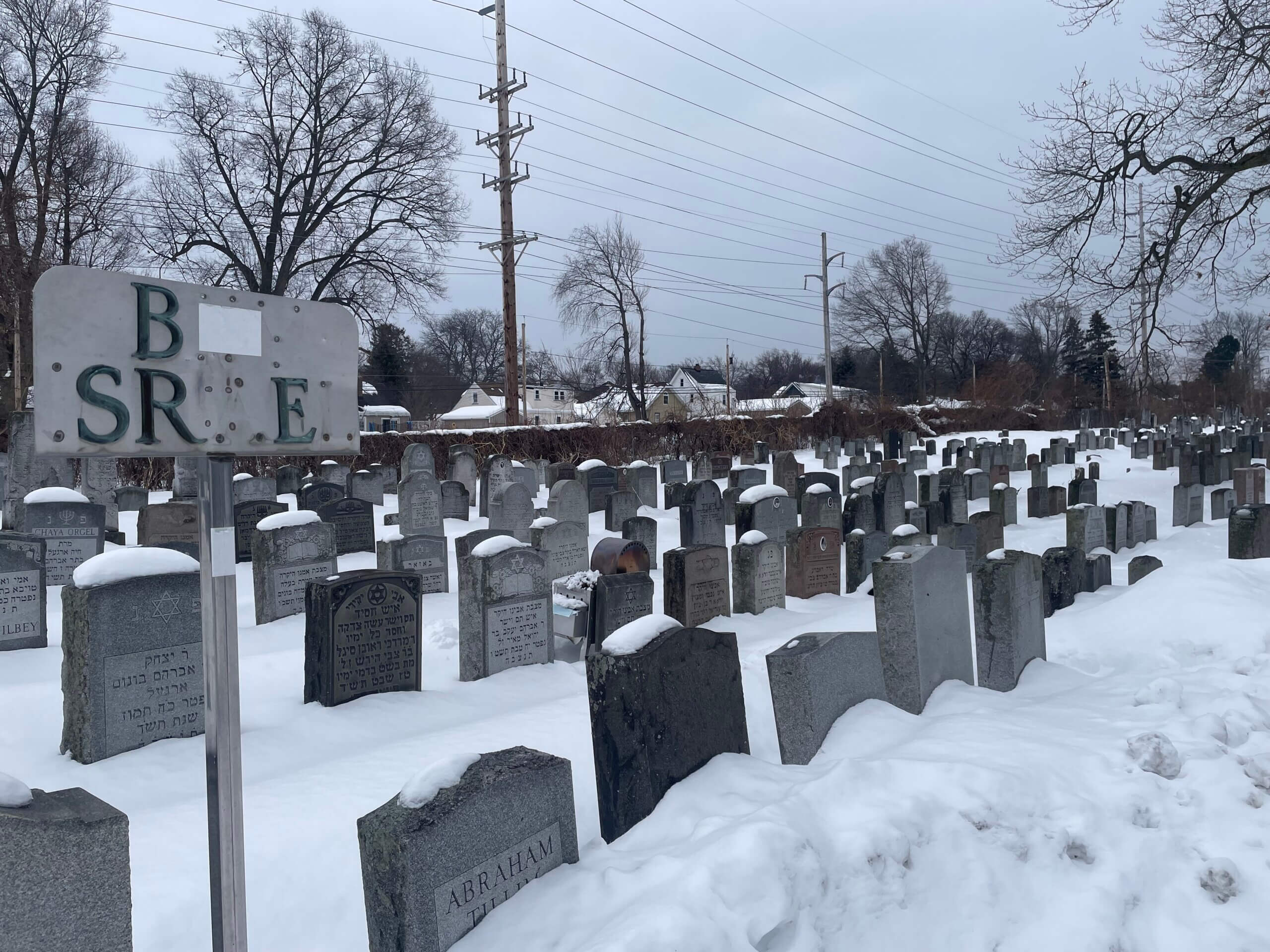Uncategorized
As jury launches deliberations in Pittsburgh synagogue massacre, defense concedes shooter’s hatred of Jews
PITTSBURGH (JTA) — After 11 days of graphic and emotionally fraught testimony in the Pittsburgh synagogue shooting trial, and a 90-minute closing argument that included gruesome photos and the replay of harrowing 911 calls, it was time for the defense to speak.
A lawyer for Robert Bowers, accused of being the gunman who murdered 11 worshipers at the Tree of Life synagogue, on Thursday walked across the courtroom to a podium, faced the jury, and spoke for just 19 minutes.
Elisa Long acknowledged the immensity of the crime on Oct. 27, 2018, and offered only half a defense. Bowers did not intend to keep Jews from worshipping, she said, but he did appear to hate Jews.
“There is no question that his posts on Gab.com and his statements that day reflected animosity and hatred toward Jews,” Long said, referring to a social media site that is a virtual redoubt for extremists.
It was a critical concession that 11 of the government’s charges, that Bowers committed capital hate crimes, may be irrefutable.
A prosecutor took another 20 minutes to rebut Long’s barebones defense, and then Judge Robert Colville ordered the jury to begin deliberations. Seven women and five men filed out of the court at 2:30 p.m., and clerks followed them with wheeled carts piled with evidence. They retired Thursday without arriving at a verdict.
The defense, which barely registered as a presence during the guilt phase of the trial, appears to be reserving its arguments for the death penalty phase, which begins a week after the jury returns a verdict, if it determines that Bowers is guilty of any of the 22 capital crimes out of 63 charges in the indictment.
Defense lawyers in March said they would bring up Bowers’ mental health, including evidence that he suffers from epilepsy and schizophrenia. On the first day of the trial, Colville forbade them from doing so during the guilt phase of the trial, but said they may raise mental health during the penalty phase.
In her closing argument, Long devoted most of her time to sowing doubt about 11 of the capital charges, that Bowers “intentionally obstructed by force … the enjoyment of free exercise of religious beliefs,” resulting in 11 deaths.
“It is vitally important not to convict him of crimes he did not commit,” she said.
The free exercise of religious beliefs “does not include the engagement in good works or conduct that may or may not be part of religious belief,” she said.
Then jurors would have to determine whether Bowers was seeking to stop a religious service “or to stop people who were supporting the resettlement of refugees,” she said.
One of the three congregations housed in the Tree of Life synagogue, Dor Hadash, was partnered with HIAS, the Jewish immigration advocacy group. She quoted Bowers’ Gab posts in which he identified Jews with what he believed was a planned genocide of white Americans to be carried out by immigrants.
“HIAS is a huge enabler of refugee invasions,” Bowers posted on Oct. 25, Long pointed out, two days before the massacre. Dor Hadash, she noted, was on that Saturday planning a “Refugee Shabbat.” His responses were “shocking and irrational,” she said, but “after learning about HIAS” and its advocacy, “Mr. Bowers’ sense of urgency increased.”
Long began her closing argument by acknowledging, as lead defense attorney Judy Clarke had done in her opening argument, that Bowers had carried out the massacre.
“There is no dispute that on Oct. 27. 2018, armed with an AR-15, he shot and killed 11 people and seriously injured two others who were in their sacred space,” Long said. The defense on day one of the trial promised “we would not offer justification, and we have not done so,” she said.
Summing up, Long appeared to anticipate the mental health arguments the defense would make during the penalty phase, while being careful not to violate Colville’s order not to explicitly raise the topic.
She described a 46-year old man “living alone in an apartment” where he slept on a mattress on the floor and who was obsessed with computers, coding and guns. “How and why this man who lived a quiet and law abiding life until 2018” committed the crimes may be “inexplicable,” she said.
In the months before the massacre Bowers “spent an immense amount of time on the internet absorbing hate,” she said.
Long did not argue that the government had proved the 11 capital hate crimes. But she also did not argue that it had not, telling the jury, “These are the charges the federal government has brought and these are the decisions you as jurors must make.”
In his rebuttal, Eric Olshan, a U.S. attorney, ridiculed Long’s claim that obstructing worship was not germane to Bowers’ intentions.
Facing the jury, he spun around and pointed to Bowers.
“On Oct. 27, 2018, that man, Robert Bowers, went into Tree of Life, where three congregations, not just Dor Hadash” were getting ready for services. The other two are Tree of Life and New Light. “He didn’t focus on Dor Hadash, he focused on any Jew he could find to kill or try to kill.”
He accused Long of cherrypicking Bowers’ Gab posts, and reminded jurors of evidence that in the months prior to the attack, Towers had “liked” just two posts mentioning HIAS, while “liking” some 400 mentions of “Kike,” an antisemitic epithet, and some 2,300 mentions of “Jew.”
“Did he go to a refugee resettlement meeting? Did he go to the border to stop Jews” from facilitating the entry of immigrants? Olshan asked. “Did he go to the HIAS office in Maryland? He drove about 30 minutes from where he lived to Squirrel Hill, the center of Jewish life in Pittsburgh.”
Again Olshan pointed at Bowers. “That person intended to obstruct them from free exercise of religion,” he said. “This is not rocket science.”
In any case, Olshan, who is Jewish, said HIAS’s work is inextricable from Jewish faith. “Welcoming the stranger” appears 36 times in the Torah, he said, including in the passage the congregations would be reading that morning. “That just proves his guilt,” he said.
Throughout the day, Bowers never looked toward the jury. Clad in a gray sweater with a collared blue shirt, he stared at a computer screen where he monitored evidence and scribbled notes, occasionally whispering to his lawyers.
Bowers’ aunt and a cousin were present in the courtroom, as were survivors of the attack and families of the victims. There was an expectation that a verdict would be quick; the overflow room for families was packed. Maggie Feinstein, who counsels the victims, was in the court room. So was Rabbi Jeffrey Myers, who testified on the first day that he expected to die where he was hiding, and recited the Shema prayer. He wore a white kippah emblazoned with the synagogue’s symbol, a blue tree.
The day began with Colville warning the jury that his instructions to them would be exceptionally long; he took 80 minutes. Then Soo Song, an assistant U.S. attorney, spoke for 90 minutes, reconstructing the day of the massacre, Oct. 27, 2018, detail by gory detail. Of the 11 people killed, she said, six were shot in the head.
She anticipated the argument Long would advance, repeatedly emphasizing the rituals Bowers interrupted with deadly results. Using bloody photos of victims in their place, she focused especially on religious implements.”The defendant committed mass murder in a synagogue,” she said. “He turned that sacred space into a place littered with prayer shawls and prayer books and 11 deceased worshippers.”
She concluded naming the 11 victims: Joyce Fienberg, Richard Gottfried, Rose Mallinger, Jerry Rabinowitz, Cecil Rosenthal, David Rosenthal, Bernice Simon, Sylvan Simon, Daniel Stein, Melvin Wax and Irving Younger.
Olshan ended the day holding two evidence bags, each with half of a bloodstained kippah. “No longer a reminder of God’s presence,” he said. “This is what he did to Irving Younger, leaving this tattered reminder found amid the shocks of Irving younger’s white hair.”
The obstruction of worship was “the natural and probable consequence of his actions,” Olshan said.”The only justice is a verdict of guilty in every charge in this case.”
—
The post As jury launches deliberations in Pittsburgh synagogue massacre, defense concedes shooter’s hatred of Jews appeared first on Jewish Telegraphic Agency.
Uncategorized
Board of Peace Members Have Pledged More Than $5 billion for Gaza, Trump Says

A drone view shows the destruction in a residential neighborhood, after the withdrawal of the Israeli forces from the area, amid a ceasefire between Israel and Hamas in Gaza, in Gaza City, October 21, 2025. Photo: REUTERS/Dawoud Abu Alkas/File Photo
US President Donald Trump said Board of Peace member states will announce at an upcoming meeting on Thursday a pledge of more than $5 billion for reconstruction and humanitarian efforts in Gaza.
In a post on Truth Social on Sunday, Trump wrote that member states have also committed thousands of personnel toward a U.N.-authorized stabilization force and local police in the Palestinian enclave.
The US president said Thursday’s gathering, the first official meeting of the group, will take place at the Donald J. Trump Institute of Peace, which the State Department recently renamed after the president. Delegations from more than 20 countries, including heads of state, are expected to attend.
The board’s creation was endorsed by a United Nations Security Council resolution as part of the Trump administration’s plan to end the war between Israel and Palestinian Islamist group Hamas in Gaza.
Israel and Hamas agreed to the plan last year with a ceasefire officially taking effect in October, although both sides have accused each other repeatedly of violating the ceasefire. According to Gaza’s Health Ministry, more than 590 Palestinians have been killed by Israeli troops in the territory since the ceasefire began. Israel has said four of its soldiers have been killed by Palestinian militants in the same period.
While regional Middle East powers including Turkey, Egypt, Saudi Arabia, Qatar and Israel – as well as emerging nations such as Indonesia – have joined the board, global powers and traditional Western US allies have been more cautious.
Uncategorized
Why a forgotten teacher’s grave became a Jewish pilgrimage site

Along Britton Road in Rochester, New York, a brick gatehouse sits across from ordinary homes. Beyond it lies Britton Road Cemetery, its grounds divided into family plots and sections claimed over time by Orthodox congregations and fraternal associations, past and present. Names like Anshe Polen, Beth Hakneses Hachodosh, B’nai Israel, and various Jewish fraternal organizations are found here.
On the east side of the cemetery, a modest gray headstone draws visitors who do not personally know the man buried there, who were never taught his name in school, and who claim no personal connection to his life. Some leave notes. Some light candles in a small metal box set nearby. Others whisper prayers and stand for a moment before going. They come because they believe holiness can be found here.
The grave belongs to Rabbi Yechiel Meir Burgeman, a Polish-born teacher who died in 1938. He did not lead a major congregation or leave behind an institution that bears his name. And yet, nearly a century after his death, people still visit.
Over time, Burgeman has come to be remembered as a tzaddik nistar, a hidden righteous person, whose holiness is known through their teaching and daily life rather than through any title or position. His grave has become a place of intercession. People come to pray for healing, for help in times of uncertainty, and for the hope of marriage. What endures here is not an individual’s biography so much as a practice: the belief that a life lived with integrity can continue to shape devotion, even after the body has been laid to rest.
In life, Burgeman was not known as a miracle worker or a public figure. He was a melamed, a teacher of children, living plainly among other Jewish immigrants in Rochester’s Jewish center in the early decades of the 20th century. At one point, he was dismissed from a teaching post for refusing to soften his instruction. He later opened his own cheder, or schoolroom. There was no congregation to inherit his name, no institution to archive his papers. When he died, he was buried in an ordinary way at Britton Road Cemetery, one grave among many.
What followed was not immediate.
Remembered in return

The meaning attached to Burgeman’s resting place accumulated slowly. Stories began to circulate. People spoke of his kindness, his discipline, his integrity. Over time, visitors came. The grave became a place not of answers, but of belief. For generations, this turning toward the dead has taken this same form. It is not worship. It is proximity. A way of standing near those believed to have lived rightly, and asking that their merit might still matter.
In Jewish tradition, prayer at a grave is a reflection on those believed to have lived with righteousness, asking that their merit accompany the living in moments of need. Psalms are traditionally recited. Words are often spoken quietly.
I have done something similar too. Years ago, before I converted to Judaism and before I had the means to travel, I sent a written prayer through a Chabad service that delivers letters to the grave of the Lubavitcher Rebbe in New York. Someone else carried it. I cannot say with absolute certainty what happened because of it. Only that the practice itself made space for hope that I was seen, and that a prayer was later answered in ways that shaped my life and deepened my understanding of Judaism.
Burgeman’s grave functions in a similar register, though without any institutional frame. People come not because his name is widely known, but because the story has endured. Over time, that story gathered details. The most persistent involves a dog said to have escorted Jewish children to Burgeman’s cheder so they would not be harassed along the way by other youths. The dog then stood watch until they were ready to return home. The versions differ. Some are reverent. Some are playful. Some verge on the miraculous. The story endures because it names something children needed: care, in a world that could be frightening.
In recent decades, Burgeman’s afterlife has taken on a digital form. His name surfaces in comment threads and genealogical forums, passed along by people who never met him and are not always sure how they are connected. Spellings are debated. Dates are corrected. A descendant appears. A former student’s grandchild adds a fragment. Someone asks whether this is the same man their grandmother spoke of. No single account settles the matter. Instead, memory gathers. What once traveled by word of mouth now moves through hyperlinks.
The internet allows fragments to remain visible. Burgeman’s story survives not because it was officially recorded, but because enough people cared to remember it. In this way, his legacy resembles the man himself: quiet, unadorned, sustained by actions rather than declaration.

This story does not offer certainty. It is about remembering a life and asking if we might still learn from it and if, perhaps, it can bring us closer to faith. Burgeman left no grand monument. He left descendants. A grave. A life of Jewish values that continues to teach.
Burgeman did not seek recognition in life. After death, he became something else: a teacher still teaching, not through words, but through the way people continue to act on his memory. That is the lesson. Not any miracle. Not any legend. The quiet insistence that a life lived with integrity does not end when the casket is placed into the earth.
Some graves are instructions.
This one still asks something of us.
The post Why a forgotten teacher’s grave became a Jewish pilgrimage site appeared first on The Forward.
Uncategorized
Turkey Sends Drilling Ship to Somalia in Major Push for Energy Independence

Turkish President Tayyip Erdogan speaks during a ceremony for the handover of new vehicles to the gendarmerie and police forces in Istanbul, Turkey, Nov. 28, 2025. Photo: REUTERS/Murad Sezer
i24 News – Turkey has dispatched a drilling vessel to Somalia to begin offshore oil exploration, marking what officials describe as a historic step in Ankara’s drive to strengthen energy security and reduce reliance on imports.
Turkish Minister of Energy and Natural Resources Alparslan Bayraktar announced that the drilling ship Çagri Bey is set to sail from the port of Taşucu in southern Turkey, heading toward Somali territorial waters.
The vessel will pass through the Strait of Gibraltar and around the coast of southern Africa before reaching its destination, with drilling operations expected to begin in April or May.
Bayraktar described the mission as a “historic” milestone, saying it reflects Turkey’s long-term strategy to enhance national energy security and move closer to self-sufficiency.
The operation will be protected by the Turkish Naval Forces, which will deploy several naval units to secure both the vessel’s route and the drilling area in the Gulf of Aden and the Arabian Sea. The security arrangements fall under existing cooperation agreements between Ankara and Somalia.
The move aligns with a broader vision promoted by President Recep Tayyip Erdoğan, aimed at reducing Turkey’s dependence on foreign energy supplies, boosting domestic production, and shielding the economy from external pressures.
Bayraktar said Turkey is also working to double its natural gas output in the Black Sea this year, while continuing offshore exploration along its northern coastline. In parallel, Ankara is preparing to bring its first nuclear reactor online at the Akkuyu Nuclear Power Plant, which is expected to begin generating electricity soon and eventually supply about 10% of the country’s energy needs.
The current drilling effort is based on survey data collected last year and forms part of Ankara’s wider plan to expand its energy exploration activities both regionally and internationally.


